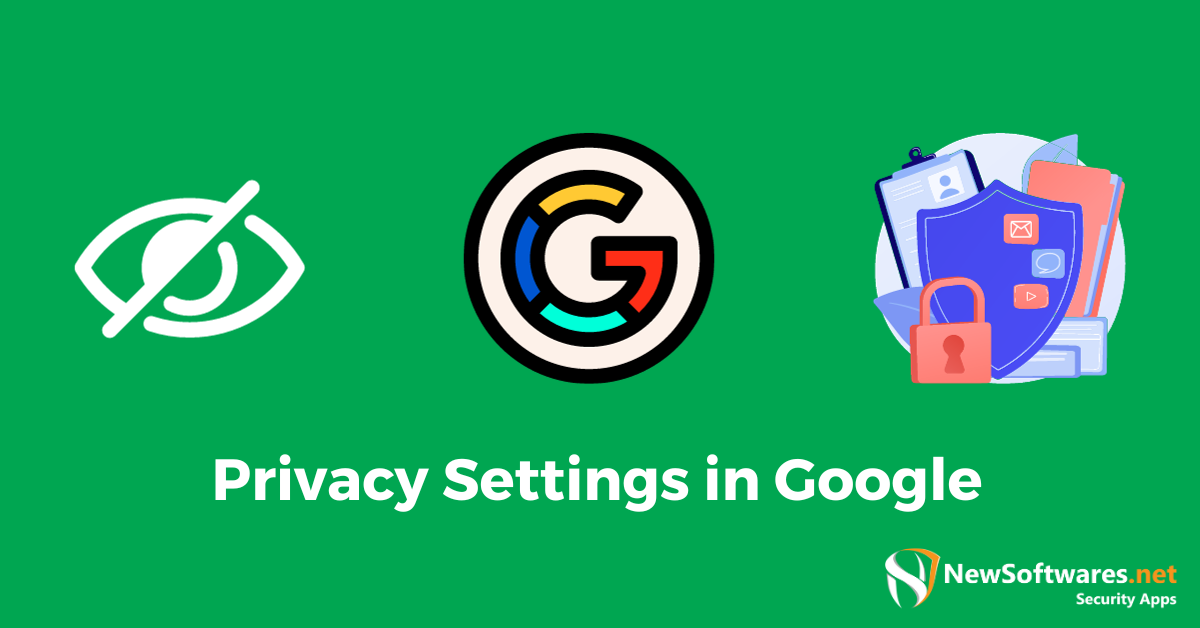Yes, Google implements robust security measures to protect personal data stored on its servers and provided through its services.
In today’s digital age, where personal data is constantly being shared and stored online, concerns about security and privacy have become increasingly important. When protecting personal data on the computer, one name that comes to mind is Google. With its vast array of services and platforms, Google plays a pivotal role in our daily lives. But does Google have the necessary security measures to safeguard our data? Let’s delve into Google’s security infrastructure to find out.
Understanding Google’s Security Infrastructure

Google is committed to ensuring the protection of its users’ data. With millions of users and an ever-growing online ecosystem, Google has developed a robust security infrastructure to safeguard against potential threats.
Google understands the importance of data protection and maintaining user trust. As a result, the company actively works to ensure that personal data is handled securely. Google follows industry best practices and adheres to stringent security standards to ensure the highest level of data protection.
One of the key elements of Google’s security infrastructure is encoding. Encryption is energetic in protecting sensitive info by converting it into an unreadable format that can only be deciphered with the correct encoding key. Google utilizes encryption across various platforms and services to secure personal data.
Google employs symmetric and asymmetric encryption algorithms to protect user data. Symmetric encoding uses a single key to encrypt and decrypt the data. In contrast, unacceptable programming uses a pair of keys – a public key for encryption and an isolated one for decryption. This multi-layered approach ensures that the data remains secure even if one layer of encryption is compromised.
In addition to encryption, Google implements other security events such as access controls, firewalls, and intrusion detection systems. These measures help prevent unauthorized access to user data and provide additional protection.
Google’s security infrastructure is designed to be scalable and adaptable to the ever-evolving threat landscape. The company continuously monitors and analyzes security threats to identify potential vulnerabilities and proactively addresses them to ensure the highest level of data protection.
Furthermore, Google regularly conducts security audits and assessments to assess its security controls’ efficiency and identify improvement areas. This ongoing commitment to security ensures that Google’s users have confidence in protecting their data.
In conclusion, Google’s security infrastructure is a comprehensive system that combines encryption, access controls, and other security measures to protect user data. The company’s commitment to data protection and continuous improvement ensures that users can trust Google with their personal information.
Google’s Security Measures for Personal Data
Regarding personal data, Google has implemented several security measures to give users peace of mind.
Google understands the importance of protecting personal data in today’s digital age. With the increasing number of cyber threats and data breaches, it has become essential for companies like Google to prioritize the security of their users’ information. Google’s commitment to safeguarding personal data is evident through implementing various security measures.
Two-Step Verification and Its Importance
One of the key security measures working by Google is two-step verification. This feature adds a coating of security to Google accounts by necessitating a second form of authentication, such as a confirmation code sent to a user’s mobile device. By implementing two-step verification, Google ensures only authorized individuals can access personal data.
The importance of two-step verification cannot be overstated. It is a barrier against unauthorized access, even if someone obtains a user’s password. With two-step verification, hackers or malicious individuals would need physical access to the user’s mobile device to gain entry into their Google account. This extra layer of security significantly decreases the risk of unauthorized access to personal data.
Safe Browsing Features in Google
Google’s commitment to user security extends beyond just protecting accounts. The company has also implemented safe browsing features to help workers stay safe while browsing the internet.
Google’s safe browsing features act as a shield against malicious websites and potential security threats. These features work by constantly scanning websites for malware or phishing attempts. When a user encounters a website that may contain harmful content, Google displays a warning message, alerting the user about the potential risks. This proactive approach helps prevent users from inadvertently accessing websites that could compromise their data.
Safe browsing features protect users from malware and phishing attempts and contribute to creating a safer online environment for everyone. By identifying and flagging suspicious websites, Google helps to diminish the impact of cyber threats and reduce the number of successful attacks.
Google’s dedication to user security is evident through its implementation of two-step verification and safe browsing features. These measures provide users with peace of mind, knowing that one of the world’s leading technology companies is protecting their personal data. As the digital land continues to evolve, Google remains committed to staying one step ahead of potential threats and ensuring the security of its users’ personal information.
How Google Handles Data Breaches?

In the unfortunate event of a data breach, Google has well-defined protocols to respond quickly and effectively.
Google understands the gravity of data breaches and their potential influence on users. As a result, the company has implemented a comprehensive response plan to minimize the damage and protect its users.
When a data breach occurs, Google’s first priority is thoroughly investigating the incident. The company has a dedicated team of cybersecurity experts who work tirelessly to identify the breach’s source and understand the damage’s extent. This investigation involves analyzing logs, examining network traffic, and employing advanced forensic techniques to gather as much information as possible.
Once the breach has been identified and assessed, Google immediately secures affected accounts. This involves resetting passwords, enabling two-factor authentication, and executing additional security measures to prevent further unauthorized access. By taking these proactive steps, Google aims to limit the impact on users and ensure that their personal information remains secure.
Google’s Response to Data Breach Incidents
Google understands the importance of transparency when it comes to data breaches. In line with this principle, the company is committed to informing users about any potential risks associated with the breach. This includes providing timely notifications to affected users, detailing the nature of the breach, and offering guidance on protecting themselves from potential threats.
Furthermore, Google works closely with law enforcement agencies and other applicable authorities to assist in investigating and prosecuting those accountable for the breach. By collaborating with these entities, Google aims to hold the perpetrators accountable and prevent similar incidents from occurring in the future.
Preventive Measures Against Data Breaches
Google recognizes that prevention is key when it comes to data breaches. The company employs various preventive measures to safeguard user data to stay one step forward from cybercriminals.
Regular security audits are conducted to assess the effectiveness of Google’s security infrastructure. These audits involve comprehensive assessments of the company’s systems, networks, and applications to identify potential vulnerabilities. By identifying and addressing these weaknesses, Google can strengthen its fortifications and reduce the risk of a data breach.
In addition to security audits, Google conducts vulnerability evaluations to proactively identify and address potential security risks. This involves regularly scanning systems and applications for known vulnerabilities and promptly applying patches and updates to mitigate potential threats.
Furthermore, Google employs proactive monitoring tools and technologies to detect and respond to doubtful activities in real time. By continuously monitoring its systems and networks, Google can recognize and neutralize potential threats before they cause harm.
Overall, Google’s commitment to data security is unwavering. The company invests significant resources in enhancing its security infrastructure, staying up-to-date with the latest industry best practices, and collaborating with experts in the field. Through these efforts, Google aims to provide its users with safe and secure online knowledge.
Privacy Settings in Google: A User’s Guide

As a Google user, it’s essential to understand the various privacy settings available to you.
Adjusting Google Account Privacy Settings
Google provides users with granular control over their privacy settings. You can customize settings related to data sharing, ad personalization, and account activity tracking to align with your preferences and comfort level.
Understanding Google’s Privacy Policy
Google’s privacy policy outlines how the company collects, uses, and defends the personal data of its users. Familiarizing yourself with this policy is crucial to understand how your data is handled comprehensively.
The Future of Data Security in Google
Google is committed to staying on the cutting edge of data security and privacy. The company continually explores innovative technologies and solutions to keep user data secure.
Upcoming Security Features in Google
Google is constantly developing and deploying new security features to provide even stronger protection for personal data. These upcoming features further elevate user security and enhance the overall user experience.
Google’s Vision for a Safer Internet
Google envisions a future where the internet is a safe space for everyone. The company collaborates with industry partners to promote a safer online environment and advocates for stronger global data protection standards.
With its unwavering commitment to data security, encryption, proactive measures against data breaches, and user privacy, Google has established itself as a leader in protecting personal data on the computer. As technology continues to evolve, Google will undoubtedly remain at the forefront of ensuring the safety and security of its users.
Key Takeaways
- Google uses encryption both in transit and at rest.
- The company has a devoted security team that monitors threats in real time.
- Google offers two-factor authentication for its services.
- User data is kept in secure data centers.
- Google frequently updates its security practices to address emerging threats.
FAQs
Q: Does Google encrypt its services like Gmail and Drive?
A: Yes, Google uses encryption for both services in transit and at rest.
Q: How can I add an extra layer of security to my Google account?
A: Activate two-factor authentication for enhanced security.
Q: Are Google’s data centers secure?
A: Google’s data centers employ high-level physical and digital security measures.
Q: Does Google sell user data?
A: No, Google does not sell user data. It uses the data for targeted advertising.
Q: How often should I update my Google account password?
A: Regularly and whenever you suspect a potential breach.
Conclusion
In conclusion, Google has implemented robust security measures, including encryption, two-step verification, and safe browsing features to protect personal data on its servers and through its services. The company actively monitors and addresses security threats, conducts regular audits, and offers granular privacy settings to users. While Google does not sell user data, it uses it for targeted advertising. Users can enhance account security with two-factor authentication and should regularly update their passwords. Google’s dedication to data security ensures user trust and positions them as a leader in online data protection.
